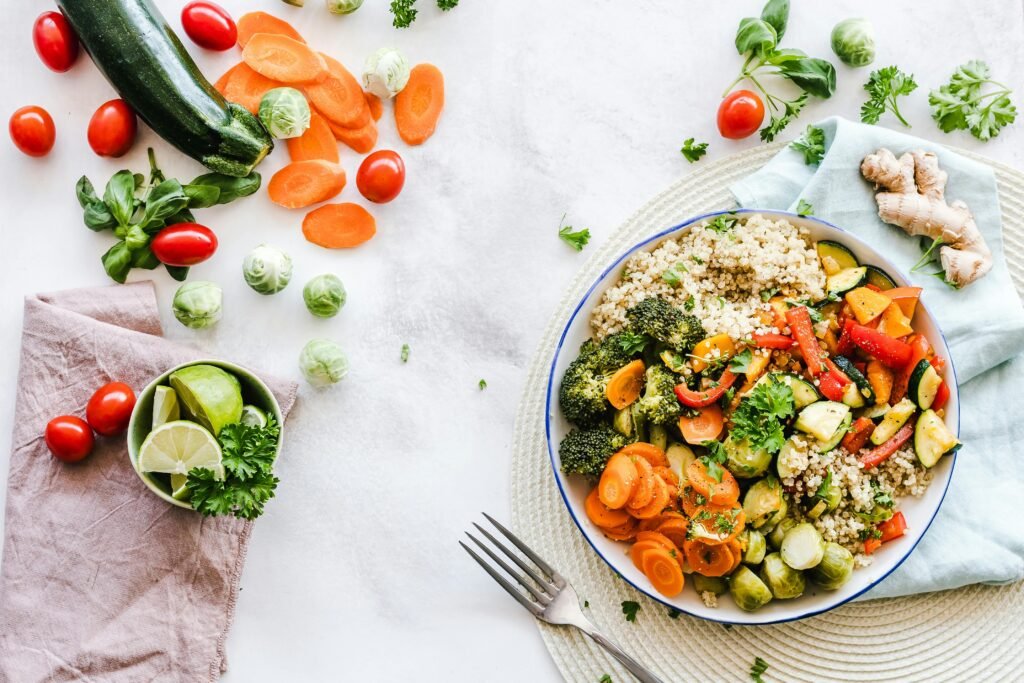
In recent years, the importance of gut health has gained widespread attention. Among the most crucial components for maintaining a healthy digestive system are prebiotics. While probiotics often steal the spotlight, prebiotics are just as important, if not more so, for supporting a balanced gut microbiome.
In this comprehensive guide, we’ll explore what prebiotics are, how they work, their benefits, and the best ways to incorporate them into your diet.
Prebiotics are a type of non-digestible fiber that feed the beneficial bacteria living in your gut. These fibers promote the growth of healthy bacteria such as Bifidobacteria and Lactobacilli, which help to maintain overall gut health. Unlike probiotics, which introduce new bacteria into your system, prebiotics act as fuel for the bacteria that are already present, ensuring they thrive and multiply.
One of the most common questions people ask is, “What’s the difference between probiotics and prebiotics?” Simply put:
Understanding the difference between probiotics and prebiotics is essential for anyone looking to improve their gut health.
Prebiotics work by selectively feeding the good bacteria in your gut. These fibers travel through your digestive tract until they reach your colon, where the beneficial bacteria ferment them. This fermentation process produces short-chain fatty acids (SCFAs), which have various health benefits, including improving gut lining integrity, reducing inflammation, and supporting immune function.
Now that we understand what prebiotics are and how they work, let’s dive into their many health benefits.
Prebiotics are essential for maintaining a balanced gut microbiome. By nourishing good bacteria, they help prevent the overgrowth of harmful bacteria, which can cause various digestive issues such as bloating, constipation, and irritable bowel syndrome (IBS).
Since a large portion of the immune system is housed in the gut, prebiotics play a vital role in supporting your immune function. The SCFAs produced during the fermentation of prebiotics help regulate immune responses, making your body more resistant to infections.
Prebiotics help improve the absorption of essential minerals such as calcium and magnesium. This is especially important for maintaining strong bones and preventing conditions like osteoporosis.
Consuming foods rich in prebiotics has been linked to a reduced risk of developing chronic diseases such as heart disease, type 2 diabetes, and obesity. The anti-inflammatory properties of prebiotics help lower levels of harmful cholesterol and reduce insulin resistance.
Emerging research shows a strong connection between gut health and mental well-being. Prebiotics may influence the production of neurotransmitters such as serotonin, which can positively affect mood and mental health.

Now that you’re familiar with the benefits, it’s time to add prebiotics to your diet. The good news is that many everyday foods are rich in prebiotics.
Chicory root contains a high amount of inulin, a type of prebiotic fiber. It’s often used as a coffee substitute and can easily be added to your diet.
Garlic is not just a flavor powerhouse; it also contains compounds that stimulate the growth of beneficial gut bacteria. Including garlic in your meals can give your gut a healthy boost.
Onions are another excellent source of prebiotics, specifically fructooligosaccharides (FOS), which help stimulate the growth of beneficial bacteria in the colon.
Bananas, especially when they are slightly green, are rich in prebiotic fibers like resistant starch. They are a great snack that also supports gut health.
Oats contain beta-glucan and resistant starch, making them an excellent food for boosting prebiotic intake.
Asparagus is another great source of inulin, a powerful prebiotic fiber. It’s also packed with vitamins and antioxidants.
Apples are rich in pectin, a prebiotic fiber that feeds the beneficial bacteria in your gut.
While it’s always best to get prebiotics from whole foods, supplements can be a helpful addition to your routine if you’re not getting enough from your diet. Look for supplements that contain fibers like inulin, FOS, and galactooligosaccharides (GOS).
Some popular prebiotic supplements include:
When choosing a supplement, ensure that it comes from a reputable source and consult with a healthcare provider to ensure it’s right for you.
There is growing interest in the role of prebiotics in weight loss. Because prebiotics can influence the gut microbiome, they may help regulate appetite and energy balance. Studies suggest that prebiotic fibers can increase the feeling of fullness and reduce calorie intake, making them an excellent addition to a weight management plan.
Just as prebiotics are beneficial for humans, they can also improve the gut health of pets. Dog prebiotic supplements are gaining popularity, especially for pets with digestive issues. If you’re considering adding prebiotics to your pet’s diet, look for supplements specifically designed for animals, such as dog prebiotic formulas.
There are several myths surrounding prebiotics, and it’s important to clarify them:
As mentioned earlier, prebiotics are fibers that feed the beneficial bacteria, while probiotics are the bacteria themselves.
While increasing prebiotic intake too quickly can cause temporary bloating or gas, these symptoms usually subside as your gut bacteria adjust. It’s essential to introduce prebiotics gradually into your diet.
Not all dietary fibers are prebiotics. Only certain types, like inulin and resistant starch, have prebiotic effects.
One emerging trend in the wellness space is prebiotic soda. Brands like Poppi have created sodas that contain prebiotic fibers, claiming to support gut health. While these beverages can be a fun way to incorporate prebiotics into your diet, it’s crucial to read the label and ensure they don’t contain too much added sugar, which can negate their benefits.
The recommended daily intake of prebiotics varies depending on the source. However, most experts recommend aiming for at least 5 grams of prebiotic fiber per day. You can easily meet this target by consuming a diet rich in prebiotic foods like garlic, onions, and oats.
While prebiotics are generally safe, some people may experience side effects like:
If you notice any adverse effects, reduce your intake and gradually reintroduce prebiotics into your diet.
Incorporating prebiotics into your daily routine can significantly improve your gut health, boost your immune system, and even aid in weight loss. From common foods like garlic and bananas to the rising trend of prebiotic soda, there are countless ways to ensure you’re getting enough of these beneficial fibers.
Remember, when it comes to gut health, balance is key. Combining prebiotics with probiotics will give your digestive system the best chance to thrive. So, make prebiotics a part of your wellness journey today for a healthier tomorrow!